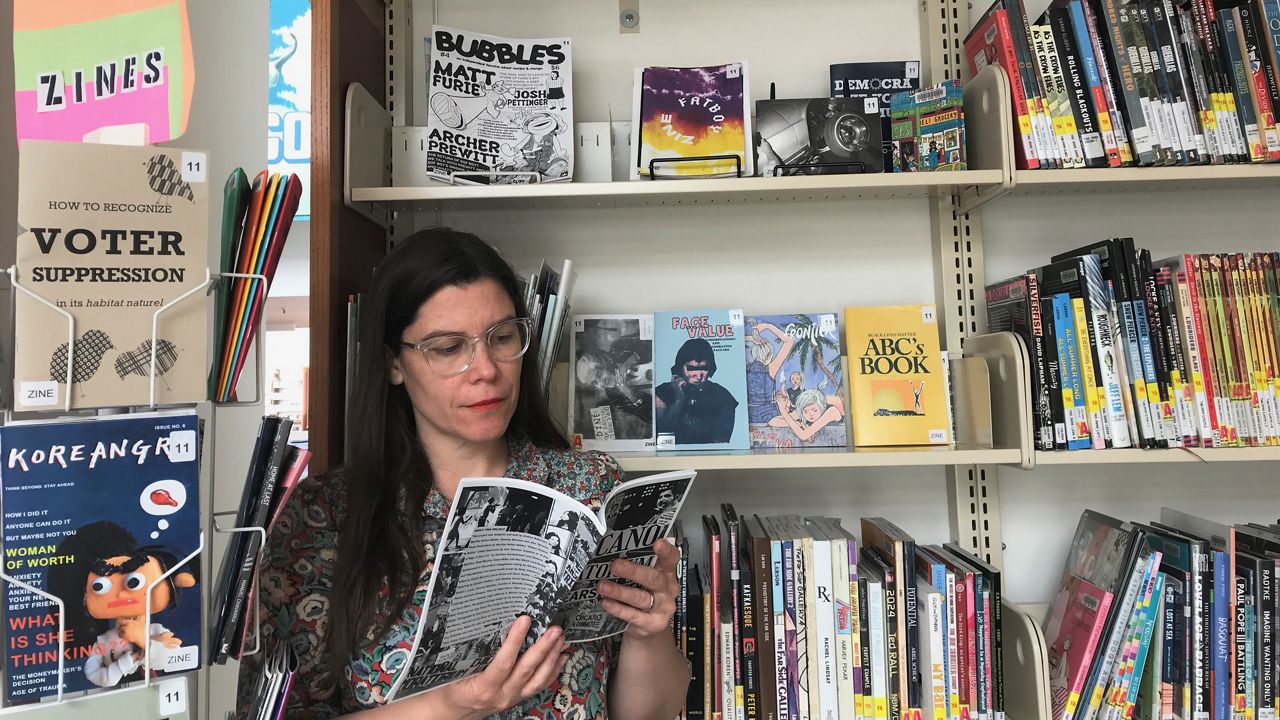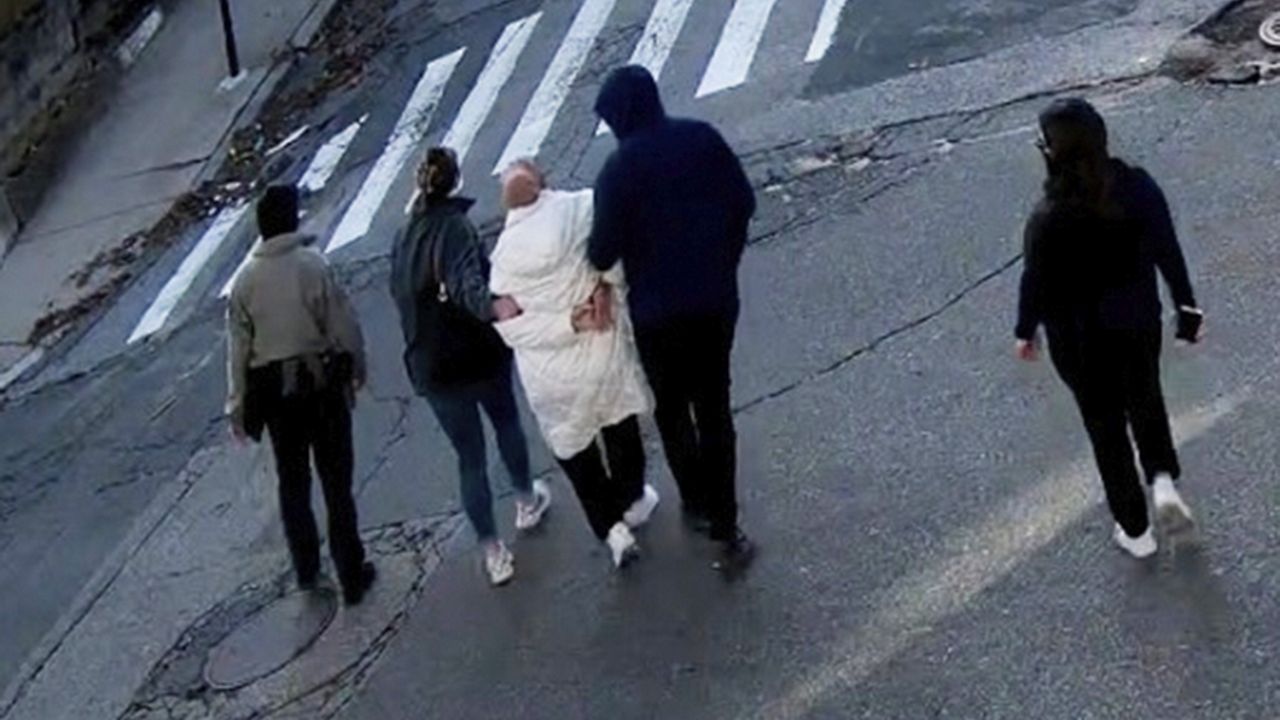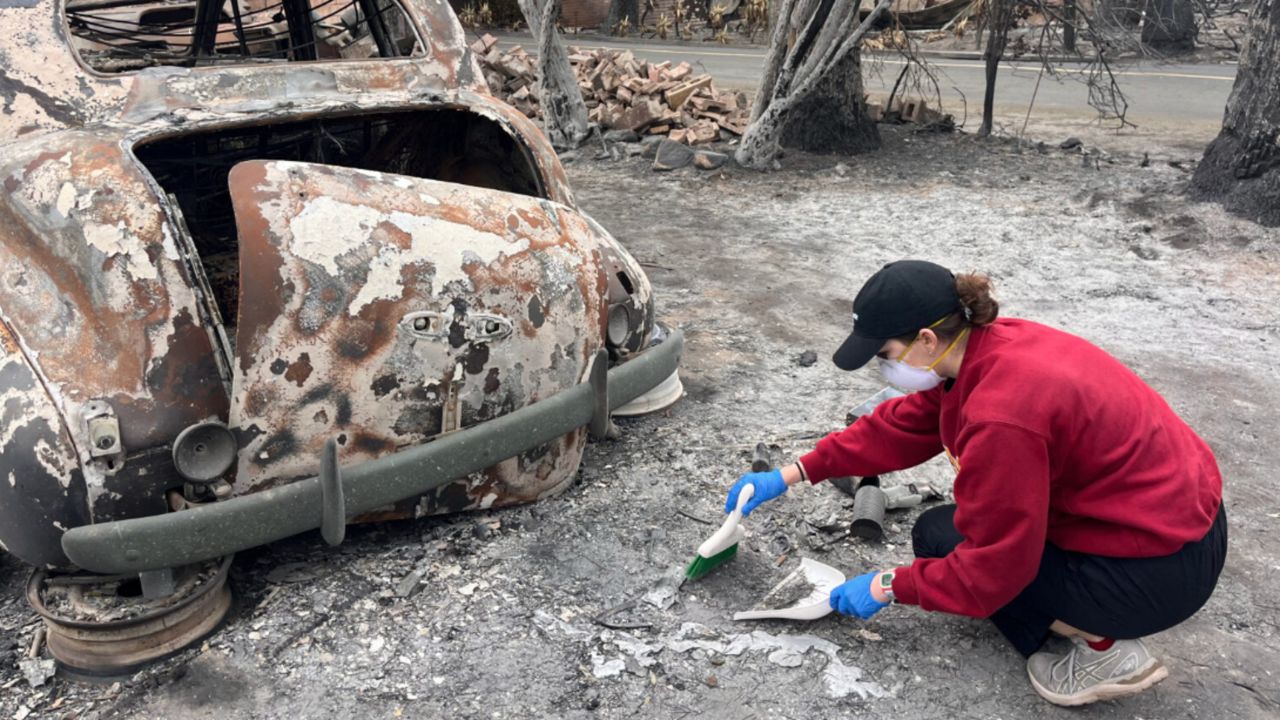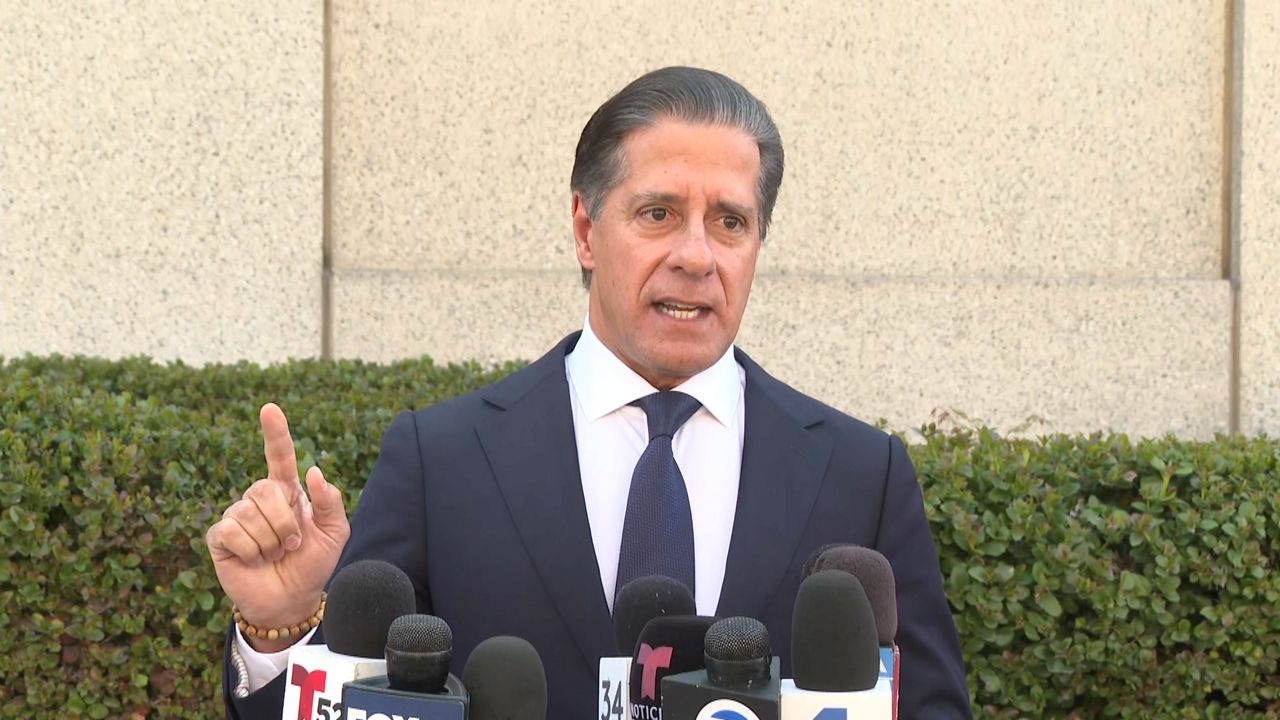HOLLYWOOD, Calif. — On April 14, the Los Angeles Public Library will hold a teen-focused workshop to teach people how to create their own anti-racist zines, giving people the tools to work within the do-it-yourself tradition of zine culture.
For the uninitiated, zines are small-run, self-published works that span genres — text, photos, illustrations, prose, poetry, political, personal, in any combination. It’s an individualistic medium that draws power and voices from the margins to create without judgement. As LAPL’s Zine Collection page says, “There are no rules!”
So when artist and zine maker Tracy Park responded to her family’s first-hand interaction with COVID-era Asian hatred, she transformed her anger.
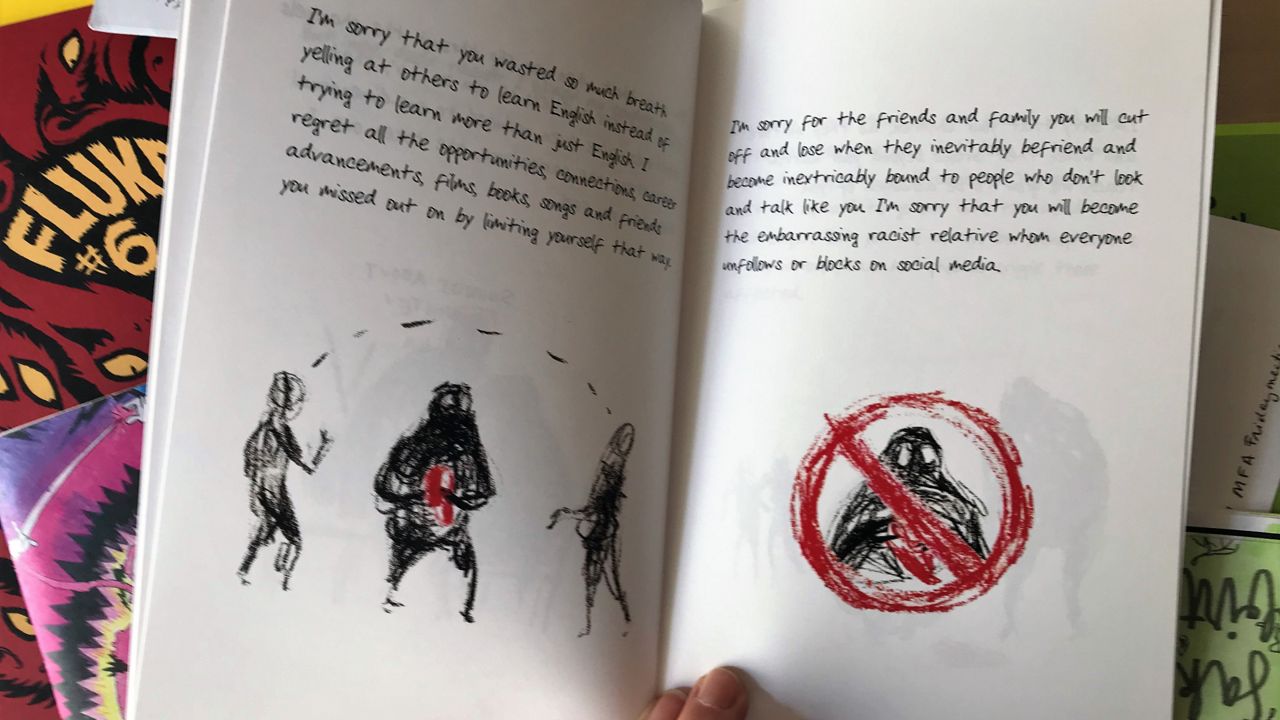
Last year, a routine outdoor stroll exposed Park and her two young children to a racist verbal tirade. It wasn’t her first time being verbally assaulted for her race, but it was a new experience for her infant and toddler.
When she and her family got home safely, Park took her feelings to the page.
“I rarely am able to come up with anything remotely clever or witty or educational or instructive on the spot,” Park said. So she began writing down everything that she wanted to say — not for catharsis or expression, but as preparation. “We’re animals; we tend to freeze. It’s a classic prey response, and I didn’t want to be prey anymore.”
Those responses became an illustrated open letter, then a zine, called “Dear Racist,” in which she paired her words with sketches of a “crude, half-formed beast donning a red hat,” interacting with the world, she told LAPL librarian Angi Brzycki.
Brzycki maintains the zine collection at LAPL’s Hollywood Regional Library and has known Park — and collected her zines — for years. When “Dear Racist” entered the cultural consciousness, Brzycki interviewed Park as part of a series of conversations with zine creators. That interview in particular, Brzycki said, had a great response, and led the library to feel it needed to do more.
After the interview took off, Brzycki asked Park to participate as a guest for a workshop themed around creating anti-racist work. During the pandemic, librarians from LAPL branches with zine collections have run online workshops (building off of standard in-person workshops) to promote the genre and creativity among patrons.
“It’s this format where, even though [zines] have been around for a really long time, it’s so niche that people are stil learning about zines, and curious about them,” Brzycki said. “It’s so great to see people engaging with them for the first time.”
Though anti-racism can be a difficult issue to broach, Park said, the typical zine format — folded letter paper, stapled together by hand — can make even the most uncomfortable topics approachable.
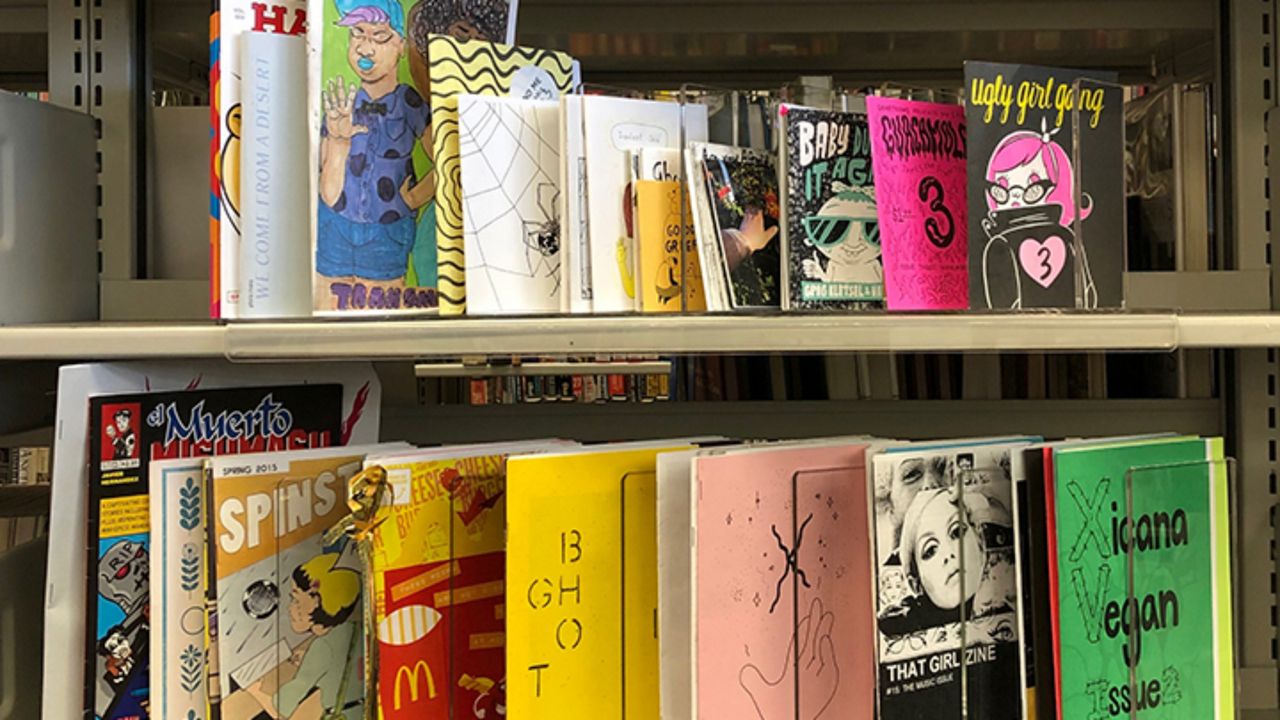
“The format is a lighter way to present something — they could open up to a very personal story with an anti-racist theme, or about an experience with racism that makes them feel a bit different,” Park said.
Plus, it has the power of being handmade physical media in the age of phones and tablets — it’s a format that Park finds to be more substantive than social media, but less intimidating for skeptical readers than a book.
“And the information that you get could weave seamlessly between factual, stat-based writing to deeply personal, and back again,” Park said. “That freedom of format and style presents a lot of different kinds of information to a reader that, if they’re open can stay with them and sit with them. And that’s power.”
The Los Angeles Public Library’s virtual Anti-Racism Zine Workshop takes place on Wednesday, April 14, at 6 p.m. For more information, visit lapl.org/zines, or email holywd@lapl.org.






